Blog
What is Bear Crawling?

1- There is no crawl - This is not a typical type of crawling. Although it is a form of locomotion, it's about your child pushing its body off the floor.
2- Vision - Your child cannot set up their vision to see through a four-point crawl.
3- Missed Milestones - Your child cannot come into sitting, then go into all-fours. Managing transition skills continues to be a struggle.
4- Midline - A forced midline is much harder to work around and can stop or limit a child's crossing midline.

Getting your child to the next level needs movement!
Learn more about Movement Lesson HERE!
Rotation is the Primary Developmental Function

Before strength, before balance, before walking:
-
rolling
-
spiraling
-
midline crossing
-
asymmetry → symmetry
-
energy accumulates (reflexes and sensory)
-
tone increases (needing more effort - hypertonia or unable to respond - hypotonia)
-
compensations appear (missed or incomplete milestones and language gaps)
-
cognition gets noisy (trying to function movement over cognition makes any form of development or diagnosis difficult. The more rotational responses are stressed, the more severe are the developmental concerns)
Why Primitive Reflexes need Gravity?

Because gravity is a reflex.
Severe Allergic Reaction

I've had this cough for the past two months. I finally decided to go in to see if it was serious. They gave me an IV steroid, and I had a severe allergic reaction. It affected my entire body. I was losing heart function; I couldn't move my legs or parts of my face.
I knew I had to get on my skeletal buoyancy and midlines.
-
threat
-
loss of airway confidence
-
facial/cranial swelling
-
autonomic instability
-
re-established midline
-
restored skeletal buoyancy
-
used external load for organized opposition
-
rebuilt internal reference before adding intensity
It’s not exercise. It’s system recovery.
Click HERE to see a video of how, after a severe allergic reaction that disrupted my system, I deliberately re-established midline, skeletal buoyancy, and controlled load.
Parent Plan Workshop
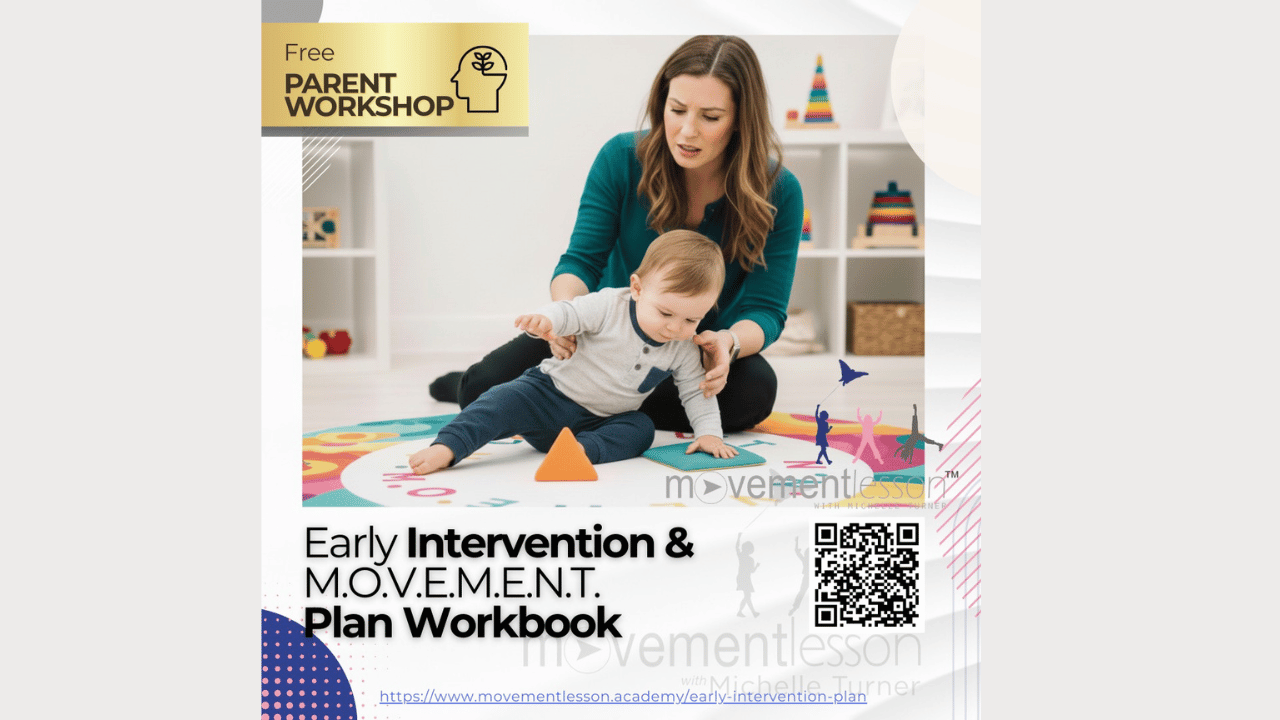
Early Intervention & M.O.V.E.M.E.N.T. Plan Workbook
Are you looking to understand better your child’s developmental pathway and how early intervention can support long-term success?
This specialized workshop is designed to give parents the clarity, tools, and confidence they need to take meaningful action at home.
Hosted by Michelle M. Turner
Leading Expert in Optimal Movement Development
In this workshop, you will learn:
How early intervention shapes the foundation of growth
What the M.O.V.E.M.E.N.T. Plan reveals about your child’s development
Practical steps you can apply immediately
How to identify and support gaps before they turn into delays
The session includes access to the M.O.V.E.M.E.N.T. Plan Workbook, which guides you step-by-step.
Seats are limited. If you’re committed to understanding your child’s development on a deeper level, this workshop is for you.
Click HERE to get started!
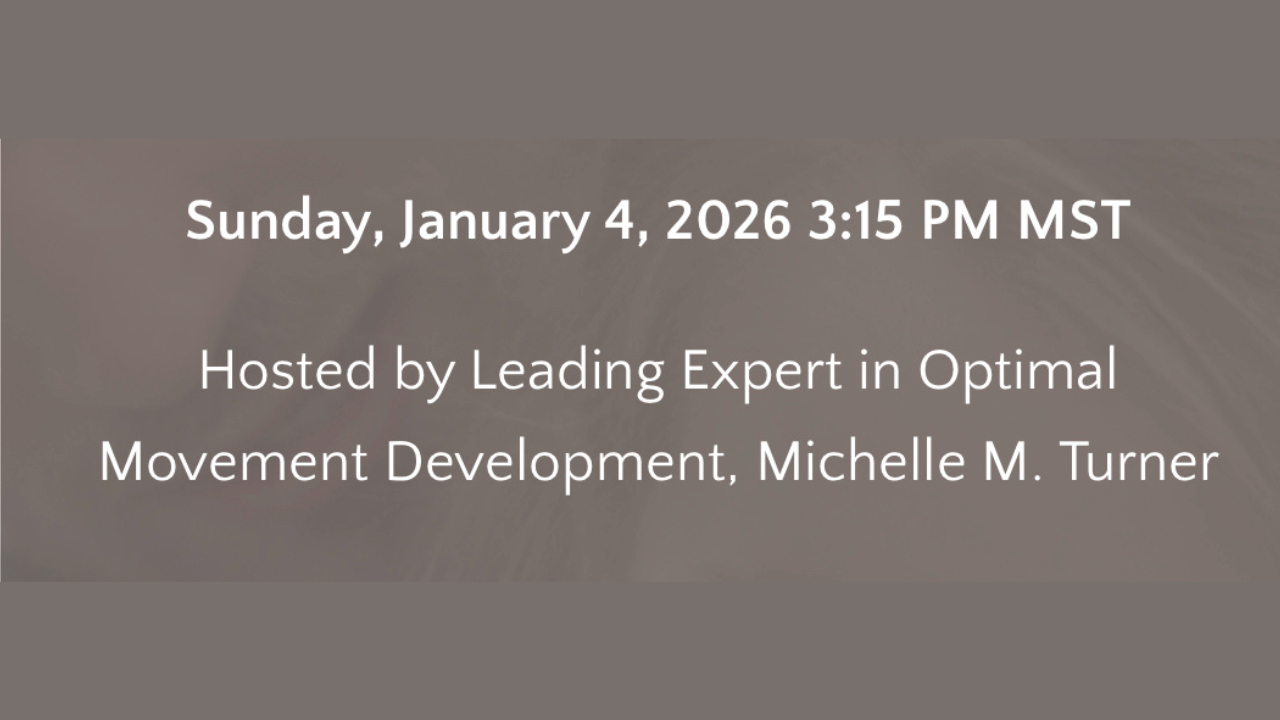
Early Movement & Development of Cerebral Palsy

Understanding CP is a complete, month-by-month video course designed to help parents:
What’s included:
MIDLINES, STANDING, and GAIT
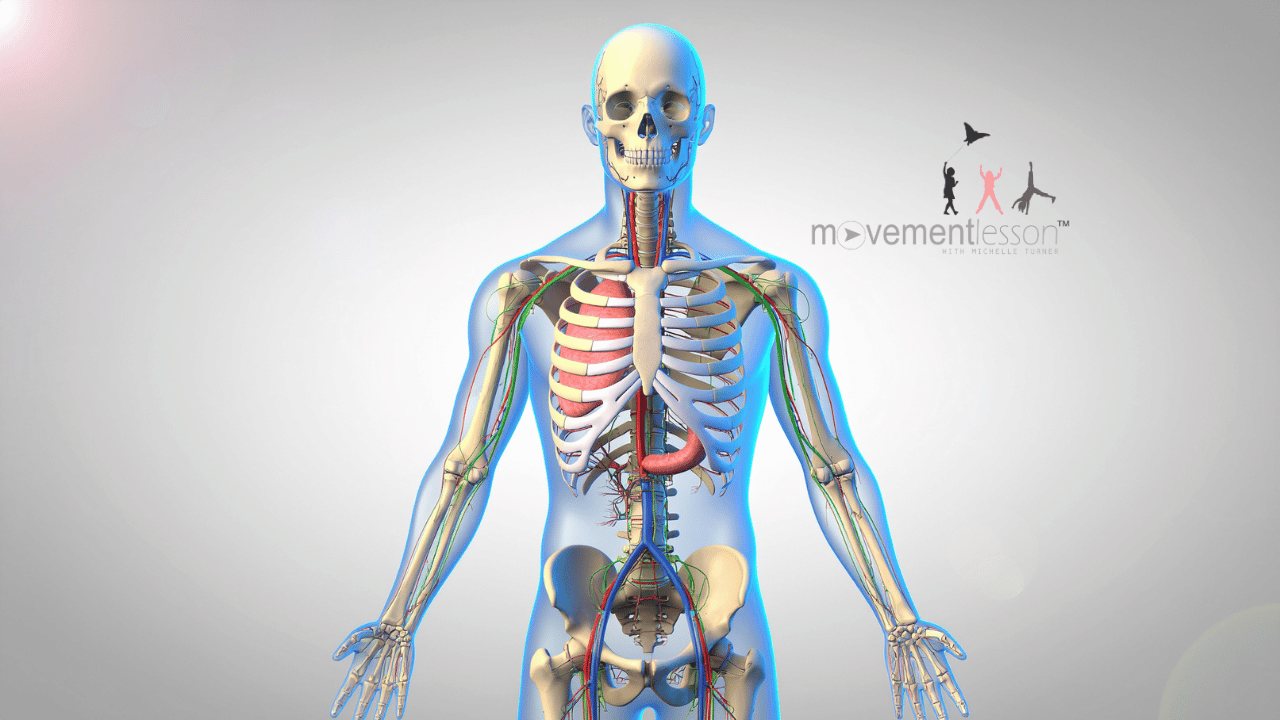
We’re deep in the architecture phase of the Midline book.
Not writing exercises.
Not listing milestones.
Not fixing movement.
We’re mapping the structure that movement depends on.
Right now, the work is focused on visualizing and defining:
• gravity
• buoyancy
• rotation
• and how these forces establish midline before skill ever shows up
Because if that architecture isn’t there, no amount of strengthening, bracing, cueing, or gait analysis will create functional movement.
This book isn’t about teaching bodies what to do. It’s about understanding when a body is available to do anything at all.
We’re building this from the ground up:
• prenatal → birth → horizontal → vertical → transitional → locomotion
• not as milestones to chase
• but as organizational stages that repeat across a lifetime
Midline isn’t a line. It’s a return. It’s reversibility under force. It’s how gravity stops being something the body braces against and becomes something the body negotiates.
This is the part mo...
Understanding CP and Development

The 5 Organization Stages of Movement
Each stage organizes the body to manage a new level of force, complexity, and intention.
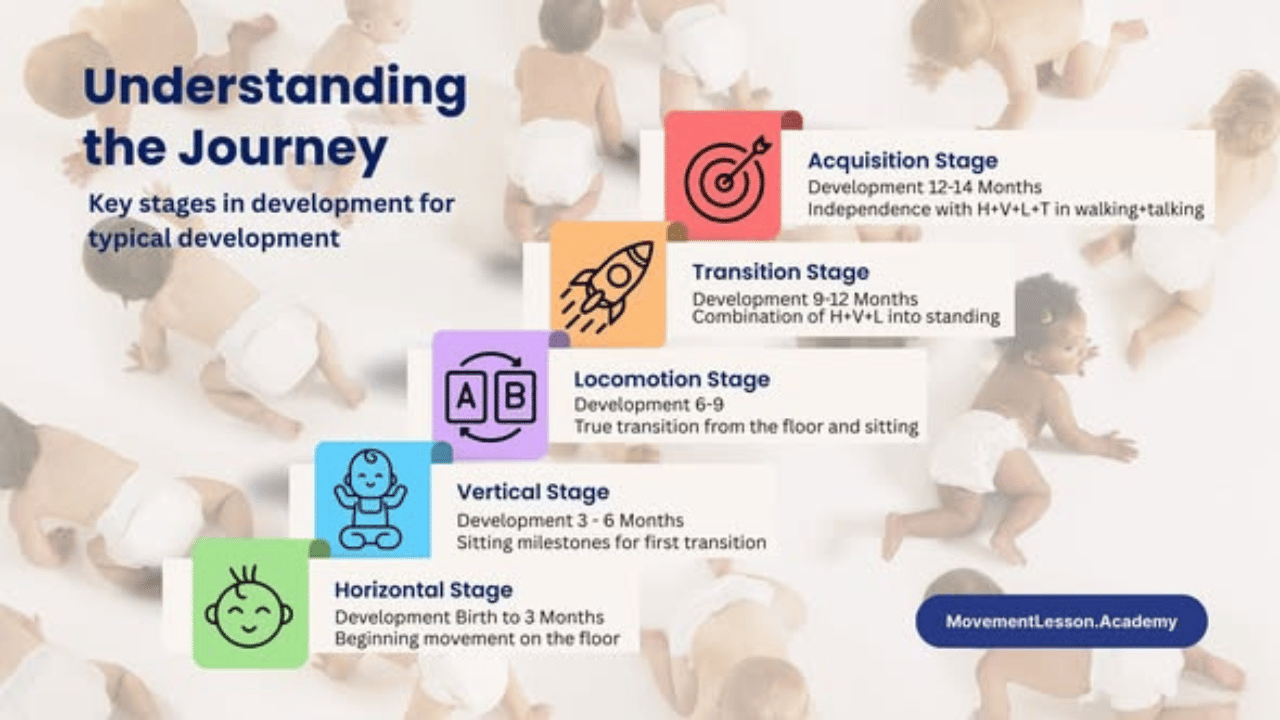
1. Horizontal Organization
2. Vertical Organization
3. Transitional Organizat...
Plagiocephaly, Tummy Time, and Physical Therapy
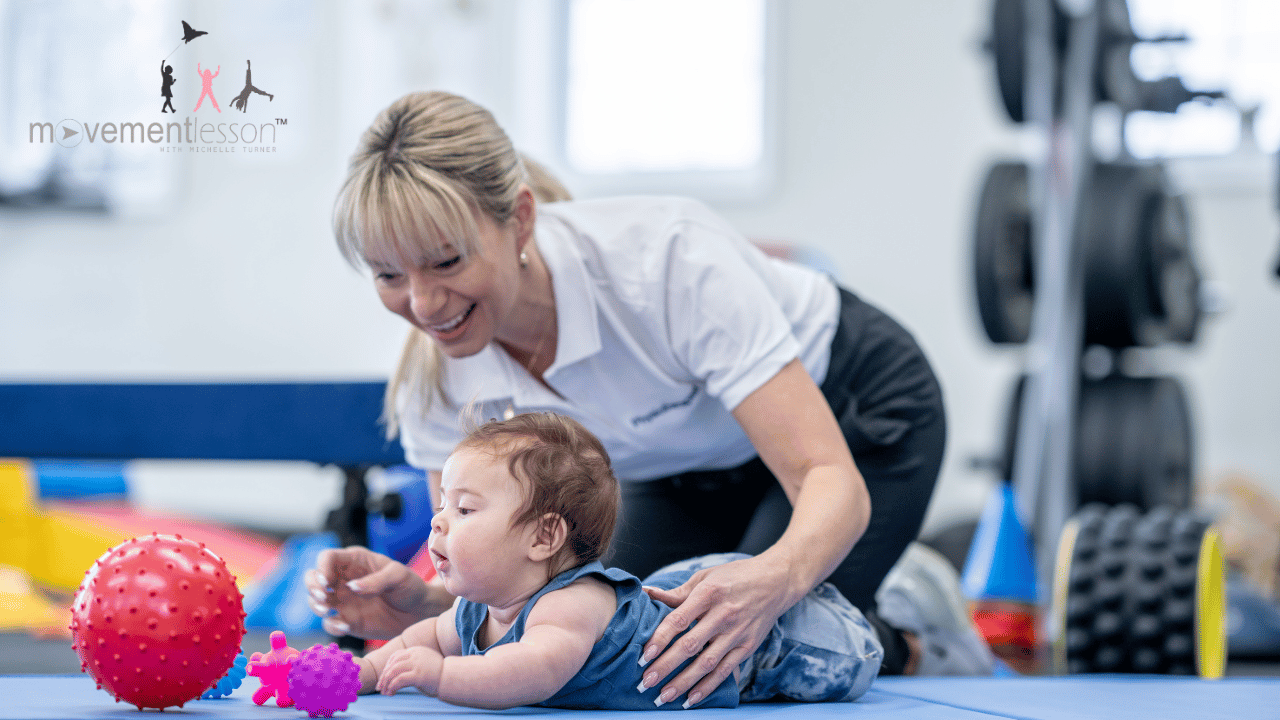
Plagiocephaly - what are some of the deviations you would see if a child was not helmeted, but plagiocephaly was improved with tummy time and PT
Improved head shape does not automatically mean improved movement organization.
The question is whether the midline structures for movement were restored or worked around.
1. Midline Organization (the most significant indicator)
-
a preference to rotate or initiate movement to one side,
-
difficulty crossing midline with the head, arms, or legs,
-
or a “frozen” center where the child moves around the midline instead of through it.
Why You Should Start Movement Lesson™ Now — Not Later

